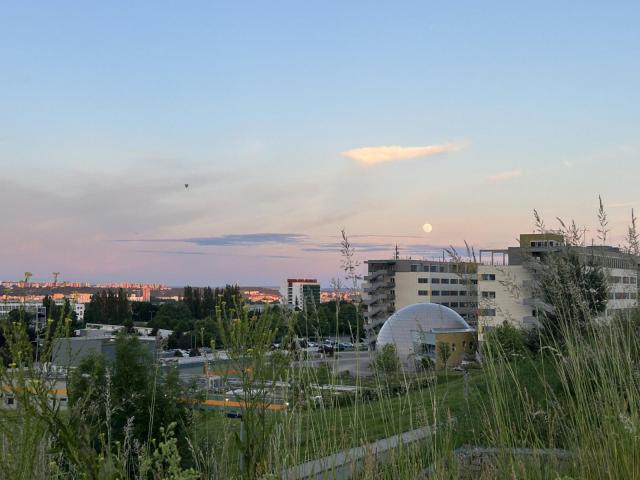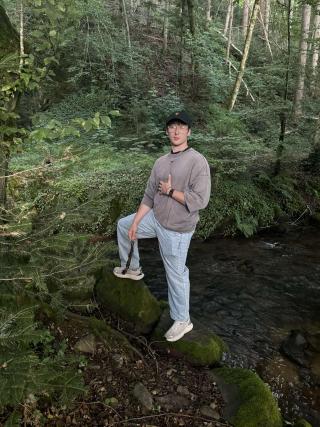Summer research programme at BUT inspired American students to pursue PhD
Another group of electrical engineering students from The University of Alabama (UA) spent three months at the Faculty of Electrical Engineering and Communication (FEEC) to work on projects in the area of fractional order systems under the mentorship of BUT experts and Todd Freeborn from UA. Rowan Aldridge and Simon Colburn share how they got into electrical engineering, what they appreciate about research, and what they’ll take from their experience.
What made you want to participate in this programme?
Simon: I saw it as an opportunity to not only expand my knowledge in cutting-edge electrical engineering research, but also to experience different cultures, different lifestyles and, overall, to try and better myself.
Rowan: I had a couple of reasons. I was looking into going to graduate school and doing research when I graduated, and I wanted a taste of that before I got to it to make sure that it’s really the path that’s right for me. I also really like travelling. I’ve been to Ireland previously and I wanted to see more of Europe. I also had Dr Freeborn as a professor and I liked the way he taught, so I figured his programme was probably pretty good.
What is your focus in the fractional order systems area?

Typically, you would only use filters in integer order, which are whole number ordered – first order, second order. My research is to see how we can use fractional order in one-and-a-half-order filter or two-and-a-half-order filter. There’s already been some research, but I want to expand on it and make it a lot easier to use for application.
Simon: I am trying to create a physical device that would mimic a fractional order capacitor across multiple frequency bandwidths. The goal is to reduce the strain on researchers who don’t necessarily have the resources to test a constant phase element or a fractional order capacitor at a specific phase. The work is very general and exploratory, a lot of it is simply exploring different avenues to see what is and what isn’t working. The aim is to help others in the future.
Have you always wanted to be electrical engineers?
Simon: I initially wanted to be a surgeon and went through all of high school believing that. Then I got into college and realised that it isn’t for me. By the time I got there, I had already built my own computer, and so I thought, well, this is something I’m really interested in. In the end it was kind of a no-brainer. The more I learned about computers and how they worked, the more I realised that this is something I’m really passionate about.
Rowan: I had no idea what I wanted to be as a kid, but I've always had this perspective that I could probably enjoy whatever I'm doing as long as it's meaningful or I feel like it's contributing. I think I ended up on the engineering path because I was really good at math and science as a child. When I started at UA, I originally wanted to do chemical engineering, which I got talked out of, and then mechanical engineering, which I didn’t like, and ended up in electrical engineering. The fact that I’m still here and that I am on this programme shows that it was probably the right choice. I’m enjoying what I’m doing and I feel like I’m contributing.
What is your favourite thing about being researchers?

Rowan: My favourite part is that it's not a waste of time to do something that doesn't ultimately work. We’ve both worked in industry, and you get chided there if you do something that is a waste of time and money, something that ends up not working. Part of the point of research is being able to say, hey, this doesn’t work. That’s still a contribution to knowledge.
What are the biggest differences between UA and BUT?
Simon: I love being able to just easily take the tram into the city. It’s very accessible. I did my freshman year in Alabama during the pandemic, and I didn’t meet anyone. It’s kind of hard getting out and doing anything when you’re stuck on campus. But here it’s so natural, it seems so easy.
Rowan: I love that European universities, and BUT especially, are made for a person to get around and for a person to exist in a space and not travel through it in a car. There’s also much more green space, the walking paths are wider, and there’s far less traffic buzzing past you, making noise.
What will you take from this experience when you go home?

Rowan: I can’t say that it’s been the best time of my life, because it’s been difficult for a variety of reasons. As a trans woman who came out only a few months before coming on this trip, I was still adjusting and learning a lot in the States. And it was very stressful. But what I learned from it is that I can do it. I made it through. I held myself together. And I produced good work along the way. From a pragmatic perspective, I definitely think that it made me realise that research is something I can do, which was one of the main goals of the summer. It helped me decide that, yeah, I’m probably going to try to go down the path of getting a higher education and going into this field if I can.
FULL VERSION OF THIS INTERVIEW AVAILABLE AT ZVUT.CZ
Author: Mgr. Bc. Tereza Walsbergerová, Ph.D.
Source: vut.cz/en
| Responsible person | Ing. et Ing. arch. Jana Němcová |
|---|---|
| Date of publication |



